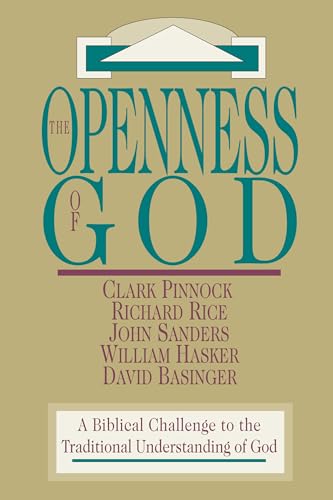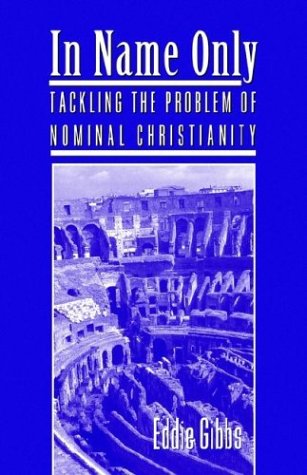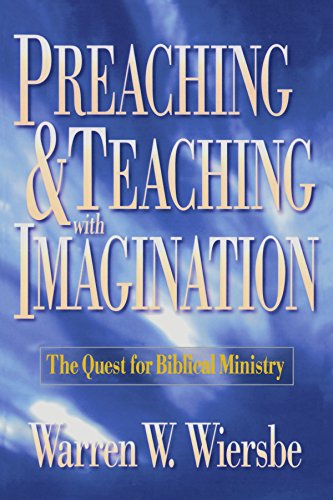Volume 21 - Issue 3
Comment
By Martyn Eden- I find myself in fundamental agreement with Dr Storrar’s paper, although on a number of points I should wish to go further than he has. It is a historical and theological imperative to get our positions straight on nationhood. If Jesus is Lord, no issues on the social or political agenda are off-limits and his lordship must extend to every area of thought and action. The notion of an autonomous politics, like autonomous economics, is one of the heresies thrown up by secularization.
- In particular, I agree with Dr Storrar that nations are human creations and not part of the created order; they are contingent cultural products of history. Karl Barth argues forcefully and correctly that the mere fact that there are nations which we inhabit does not entitle us to deduce that there must be a true command from God as Creator, or some distinctive form of obedience that we owe.1 Even so, nationhood as such is never condemned in Scripture. Nations in the Bible bear the marks of the fall in the same way as do all social institutions, but nationhood is associated with God’s mercy. The incident of Babel in Genesis 11 reflects both judgment and grace. When God divides and scatters by creating a confusion of languages, he keeps human creatures from uniting in the pursuit of evil in the way, for example, that is foreseen in Revelation 13. It has been well remarked somewhere that ‘the same proud sin which prevents mankind from uniting for good also prevents us from uniting for evil’.
- It follows from this that I have no difficulty in accepting Dr Storrar’s view that: (a) Nations are a valid cultural expression of humanity created in God’s image; (b) Nations may constitute a legitimate defence of identity, BUT (c) Nationalism may also be idolatrous. The challenge that lies before us, however, is to answer the question: when is national loyalty a virtue and when does it become a vice? In order to answer that question, we need a definition of nationalism which is less neutral than the one Dr Storrar provides when he speaks of ‘those political ideologies and movements fostering national consciousness and advocating the right of nations to self-determination’. I see merit in Nicholas Wolterstorff’s definition of nationalism as ‘a nation’s preoccupation with its own nationhood’.2 There are two principal reasons for such a preoccupation. One is reactive and defensive, whilst the other is offensive in both senses of the word. These are generally two sides of the same coin. Both Isaiah Berlin and Martin Buber have explained the former in terms of a nation’s response to a wound or disease in the body politic of a nation.
Bodily organs do not draw attention to themselves until they are attacked by disease. Similarly, nationalism is at bottom the awareness of some lack, some disease or ailment. The people feel a more and more urgent compulsion to fill this lack, to cure this disease or ailment.3
So when Argentina invaded the Malvinos Islands, she wounded Britain’s national pride. The response was a war, even though the British government had been signalling its willingness to discuss the sovereignty of the Falklands for a long time. Or again: many other expressions of nationalism can be explained in terms of reactions to colonial and imperialistic arrogance. We are bound to ask, therefore, to what extent a particular nationalism is a reaction to (e.g. cultural) oppression.
The offensive form of nationalism is so preoccupied with its national identity and interest that it becomes blind to the virtues and interests of other nations, or even to their very existence. The first president of the modern State of Israel described how ‘a nation without a country found a country without a nation’. This kind of nationalism not only oppresses cultural minorities, it exploits them economically and manipulates them for reasons of its own national security. This is plain sin and its correlations with war are too numerous for me to need to document.
A discussion of ‘Gospel and Nationhood’ needs to take the actual or potential sinfulness of nationalism very seriously. I do not think that Dr Storrar’s description of ‘vertigo’ is warranted here. Of course, nationhood and national identity have their positive aspects, such as the richness of the cultural heritage related to language; national identity as an antidote to tribalism and parochialism; psychological benefits of such national identity; etc. And, yes—national identity is also an antidote to the rootless internationalism which allows multi-national corporations to pursue their selfish goals at everyone else’s expense. But when national consciousness and self-determination themselves become the causes of sin and even idolatry, as happened in the cases of German national socialism and Afrikaner nationalism, these are at odds with the gospel.
- We should not ignore in our discussion what the Gospels implicitly say about Jewish nationalism. We know that, at the time of Jesus’ ministry, Israel was occupied by Roman armies and that Jewish expectations of the Messiah were that he would be the national liberator. We also know that the Zealot nationalist movement was popular. The Gospels tell us that Jesus’ disciple, Simon, was a Zealot. Oscar Cullmann plausibly argued that at least two other disciples—Judas Iscariot and Peter—were probably Zealots as well. Cullmann further argued, on the basis of Mark 8:29–33, that Jesus was under pressure to conform to Zealot expectations and consciously chose not to do so.4
However, it is clear that Jesus totally replaced the Jewish nationalism of his day: ‘My kingdom is not of this world’ (Jn. 18:36). Moreover, he acknowledged a limited role for Roman government (Mk. 12:17) and he paid the Roman tax (Mt. 17:24–27). He even included a collaborator—Matthew—in his group of disciples, along with Simon the Zealot. Jesus’ priority was the kingdom of God. ‘Seek first the kingdom’, he taught. David Bosch summarized Jesus’ attitude to nationalism thus:
Jesus destroyed all human definitions of community solidarity. In doing so, he included at least three groups of people who were normally excluded. First, he included the useless ones: the blind, the lame and the lepers. Secondly, he included the traitors of the nation and the exploiters, namely the universally hated tax collectors. Thirdly, he included the ‘enemies’, especially the Samaritans and the Romans. This cost him rejection … he was betrayed and crucified because he refused to fulfil sectional and ideological aspirations.5
Whenever nationalistic aspirations are given priority over those of the kingdom, those aspirations fall under the judgment of God and we should resist them.
- Finally, let me make a comment on Dr Storrar’s four models for a Christian understanding and response to nationhood. I must confess that I should not have presented three of them in such an elaborate theoretical garb, but they are, indeed, models for practical discipleship for us all to use.
I want, however, to single out the Christian Democratic model.6 I see in this model a genuine basis for both political analysis and action in post-modern society. The model not only applies to Wales and to Scotland, for example, as nations within a multi-nation state, but it also applies to regional communities within Europe. More radically, it could also be applied to ethnic communities which are not geographically concentrated, but nevertheless fit the Christian Democrat definition of ‘nation’. It could be of enormous significance in Northern Ireland for that reason.
Speaking as a Britisher in the British situation, for me the big challenge is how to move from the present tight unitary state in Britain to a situation which allows some measure of self-determination to various national communities in a truly democratic and non-violent manner. I see a reformed House of Lords as the key—replacing the hereditary peers with representatives of those communities. With that relatively modest reform in place, subsequent changes could be worked out within the democratic process and not outside it …
… But please forgive me—I have moved away from Gospel and Nationhood. The point, however, is this: if the model is to be made to work, it must be steered, indeed, by biblical theology, but also earthed in Realpolitik. Integration is the name of the game.
1 See the argument of the whole section in Karl Barth, Church Dogmatics III/IV (Edinburgh: T. & T. Clark, 1961), 54.3 (pp. 285–323).
2 N. Wolterstorff, Until Justice and Peace Embrace (Grand Rapids: Eerdmans, 1983), ch. 5.
3 M. Buber, Israel and the World (New York: Schockess, 1973), p. 218.
4 O. Cullmann, The State in the New Testament (London: SCM, 1957).
5 See D. Prior, Jesus or Britannia (Nottingham: Grove Booklets, 1983), where this passage is quoted.
6 By the way, I refute the suggestion that there is no Christian Democratic movement in the United Kingdom. We may be youthful, but there are 8,000 members and we are growing both numerically and, I think, in maturity.
Martyn Eden






